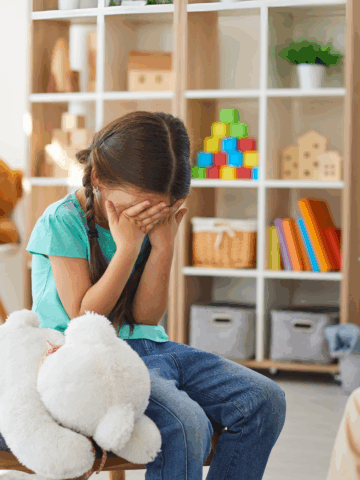It’s your child’s first day at her new preschool and when you try to leave, she bawls. This isn’t unusual on the first day, but you begin to worry when she continues to cry at drop-off time for the next three days.
What your child is experiencing is common and shouldn’t prompt too much concern: separation anxiety, says Dr. Mery M. Taylor, a psychologist at CHOC.
Separation anxiety often happens when small children make big transitions to new places. This begins in toddlers at age 2 or 3. Crying on the first day of preschool is normal and usually subsides after the child becomes engaged in the new environment, she says.
“It’s fairly common for kids to have separation anxiety when they are entering a new environment, like going to preschool or starting kindergarten or a new first grade,” Dr. Taylor says. “It’s not a disorder until it is prolonged.”
Separation anxiety becomes a disorder when the child cries before going to preschool for more than a week, or throws up, won’t eat or is inconsolable for an hour. Under these circumstances, parents should be concerned.
Tips for helping toddlers cope with separation anxiety
Parents who suspect their child has a separation anxiety disorder should talk to their doctor. In the meantime, Dr. Taylor suggests parents try these steps:
- Talk to the child and prepare her for what’s ahead. Explain what will happen at preschool, how long she will be there, what she will play and when she’ll be picked up to go home.
- Parents should think about how they react in a situation where their child is looking to them for behavioral cues. Are they showing signs of anxiety or stress? If mom seems panicked or sad when dropping off her toddler at preschool, the child is likely to be scared too. Parents should act calm and be consistent.
- Avoiding a stressful situation enhances the child’s fear. Parents should employ a systematic approach to desensitizing a child. If preschool causes the separation anxiety, ask the child to imagine he is there, then drive by the school, and next take him there to see it.
- Teach kids to engage in positive self-talk to help them cope. Have them say things like, “I can do this” and “I can’t wait to learn.”
- Teach your kids some physical things they can do to calm down, like yoga or walking the dog.
Get more expert health advice delivered to your inbox monthly by subscribing to the KidsHealth newsletter here.
Get mental health resources from CHOC pediatric experts
The mental health team at CHOC curated the following resources on mental health topics common to kids and teens, such as depression, anxiety, suicide prevention and more.





